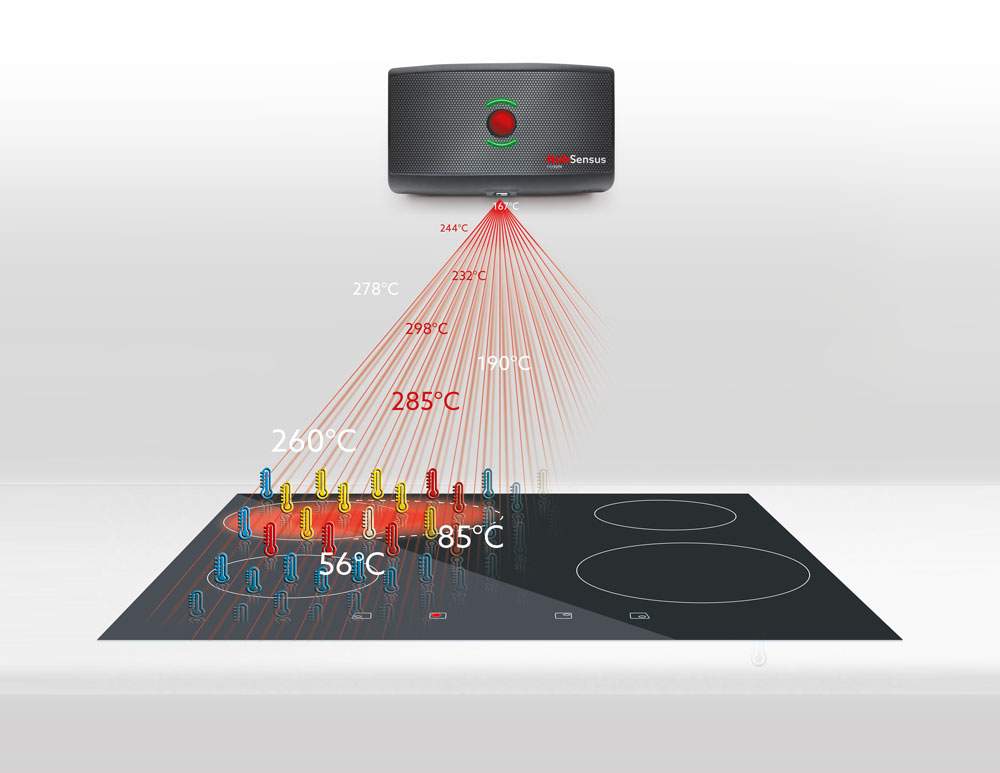
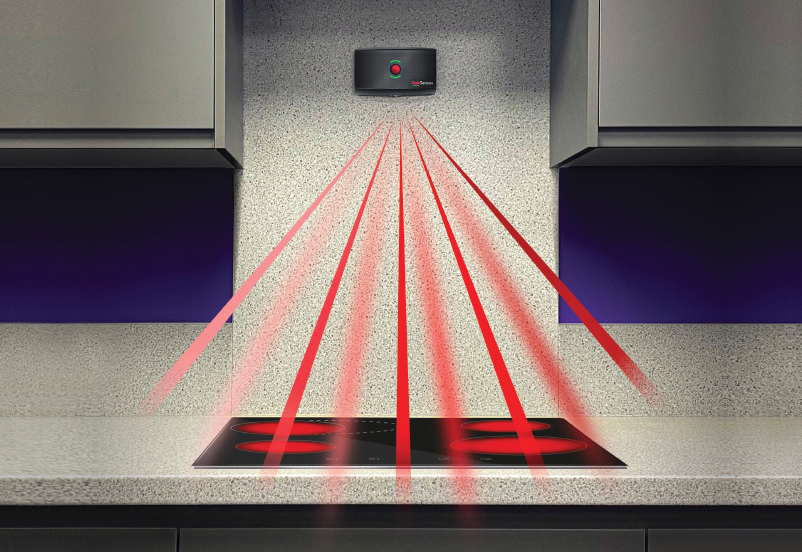
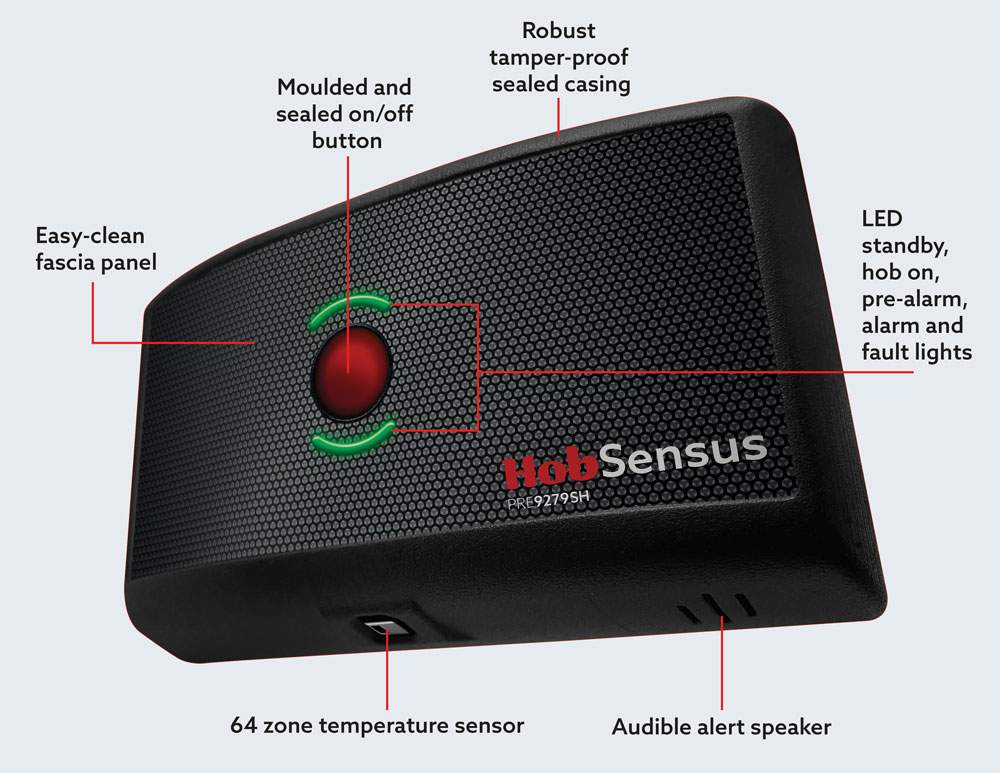
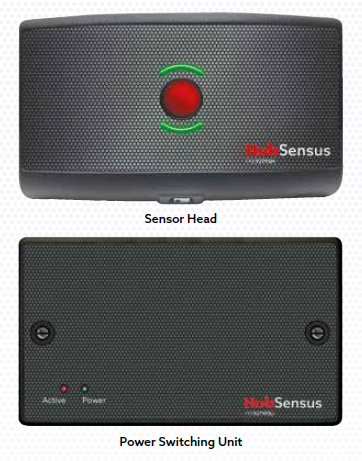
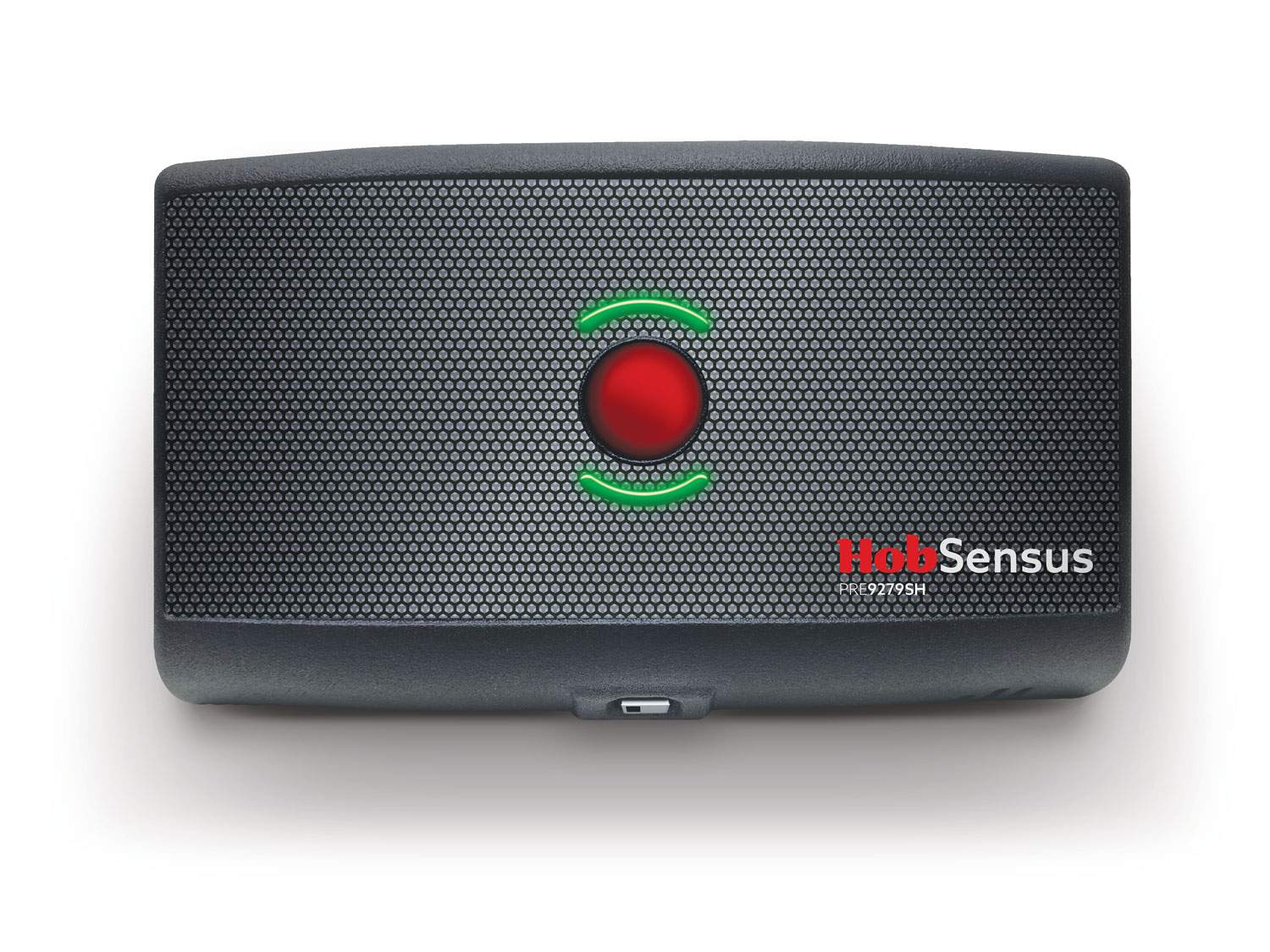

Prefect Controls Ltd
Manufacturer's Product Description
HobSensus is an award-winning kitchen safety device, designed specifically for communal kitchens and for people residing in sheltered or assisted-living property.
HobSensus makes kitchens safer by alerting residents if there is potential for a pan fire and by ensuring that hobs are not left switched on if the person preparing food is distracted. As it complies with EN50615:2015 as a Category B product, conscientious landlords, and those caring for or living with dementia, have peace of mind that the kitchen is a safer place with HobSensus on the wall.
In ordinary operation, when the red button is pressed a cooking time of 15/20/30 or 120 minutes (time set at installation) is activated before the hob switches off, this is usually sufficient for most pan-based meals to be prepared. If more time is needed the button is pressed to reset the timer. In situations where reaching the button may be an issue the unit can be set to Auto-Start.
HobSensus ‘watches’ over the cooking area, monitoring temperature on the hob surface and measuring the current drawn by the appliance. The ‘eye’ of the device reads the temperature at 64 separate points across the surface of the cooking area. If the temperature rises to dangerous levels in any of the zones, for example a pan of boiling oil is left unattended, the alarm sounds and lights flash to alert the user, if there is no intervention and temperatures continue to rise, the power turns off and disaster is averted. Normal operation can be resumed when the kitchen is occupied again, and the red button is pressed.
With HobSensus’ robust manufacture and hard-wearing fascia plate, it is easy to keep clean and ensures the units effectiveness in the most challenging environments. Built in tamper proofing ensures HobSensus cannot be interfered with, if sensors are covered for example, the hob will become inoperative. While the design aesthetic will fit in with any kitchen style.
The unit is fitted on the wall 500mm above the work surface, and the 40Amp switching capacity makes it compatible with most 600mm or 900mm wide electric hobs.
The Sensor Head (SH) is mounted above the hob surface and the Power Switching Unit (PSU) under the worktop. These can be hard-wired or where this is impractical the sensor head can use 4AA batteries for power, providing an estimated life expectancy of 2 years. A secure, highly reliable digital radio signal provides communication between the two devices.
HobSensus can be connected to third party devices such as smoke and fire alarms. When connected, if the alarm is triggered the HobSensus can automatically switch the hob off. If a telecare type system is installed, HobSensus can call a designated number to inform the receiver that the unit has been triggered, particularly useful for carers or family of those living with dementia.
• Power is cut to the hob before fire flashpoint temperatures are reached.
• Hob is switched off after 15/20/30 or 120 minutes of activation if the cook is distracted.
• 64 zone temperature sensor.
• Compatible with most 600mm or 900mm wide electric element and induction hobs.
• 40Amp switching capacity.
• Hard wired (LV) or battery operation.
• Complies with EN50615:2015 (what is EN50615:2015?).
• Quick and easy installation and simple operation.
Manufacturer's Contact Details
Prefect Controls Ltd
Unit 2 Church Field Business Park
Church Field Road
Sudbury
Suffolk
CO10 2YF
UK
01787 320 604 mail@prefectcontrols.comKey Features
- 64 zone temperature sensor.
- 40Amp switching capacity.
- Hard wired or battery operation.
- Complies with EN50615:2015.
- Quick and easy installation and simple operation.
- Compatible with most 600mm or 900mm wide electric element and induction hobs.
- Timer to avoid hobs being left on.
- Power is cut to the hob before fire flashpoint temperatures are reached.
- Easy clean.
- Connection to fire/smoke alarms.
- Connection with Telecare type systems.
Product Dimensions
| Length | |
|---|---|
| Width (cm) | 14.7cm |
| Height (cm) | 8.6cm - 0cm |
Product Specification
| Easy to clean | |
| Temperature sensor | |
| Tough | |
| Easy to use by simply pressing the red button | |
| Fail safe electrical power is isolated if you forget or are distracted whilst cooking | |
| Installation suitable for new and retro fitting installations | |
| Low battery alarm | |
| Minimal maintenance |